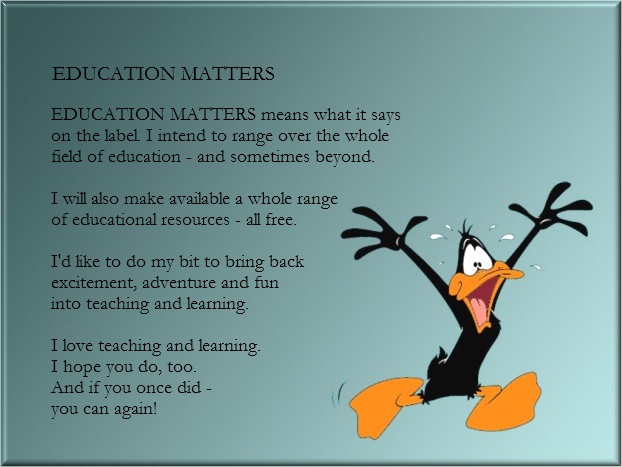BE A GREAT TEACHER NOT JUST A GOOD ONE
What makes the difference between good teaching and great teaching?
1. Build Confidence - ‘Believe in yourself’
Build confidence in your students. Inspire confidence and optimism. Convince them they can achieve success. Celebrate success individually and as a group. They can learn to be good enough at anything. Your students have to be able to trust you. Respond seriously to children. Never be judgemental or mocking. Never get a laugh from the group at an individual’s expense. Confidence comes gradually; it takes time. Make building confidence a priority.
2. Don’t be afraid to make difficult decisions
Some decisions are difficult to make but if they are the right decisions, make them and stick to them – unless they turn out to be the wrong decisions. Along with your responsibility, you need to have the authority to make potentially difficult decisions in the classroom. You know what you want your group or individuals to achieve – make the decisions that will help them achieve their goals. When you know what’s right, go for it.
3. Help develop those around you – and yourself
Great teaching means leadership, and leadership involves leading. Help develop the people around you whether they are children or adults, and at the same time don’t neglect to develop yourself. Keep pushing their boundaries, and pushing your own. Get out of your comfort zone regularly. Give lots of constructive feedback. Everyone wants to do it better next time. Everyone has got strengths. Share yours, and learn from the strengths of those around you. Make the most of each other.
4. Communicate well
Being able to communicate well is the essence of great teaching. If it does not come to you naturally, work at it until it does – even if it means getting out of your comfort zone. Encourage those around you, especially your students, to enjoy communicating. Remember ‘you’ are the message, and so is the environment you create for your students. When students come into your learning zone, they should feel it is a warm, welcoming place where they can feel at home. And your learning zone should quickly become their learning zone. Make it easy for others to communicate with you. Start by listening. Help others clarify and express what it is they want to communicate.
5. The best teachers are non-conformists
Being a ‘non-conformist’ does not mean running around causing mischief for its own sake. But it does mean questioning the status quo, looking at how things can be improved, trying other ways of doing things, taking risks, and seeing teaching and learning as an adventure. Non-conformists are willing to look at changes; they enjoy trying out new ideas; they welcome innovation that works. Good teachers get bored easily; they are on the lookout for trying to do the same things differently, and this enthusiasm communicates itself to their pupils who also become more and willing to try doing the same things differently.
6. Enjoy the company of others
You are going to spend most of your life in front of young people, so if you don’t enjoy the company of young people, find another career. Teachers tend to be natural communicators, but if you’re not, it is something you can work of. We can all become who we want to be by behaving as if we were who we want to be until being who we want to be comes as naturally as being who we used to be. If you want to be a kind person, be kind to those around you until ‘being kind’ is ‘you’. Bounce ideas off those around you, colleagues and children. It’s a lot more fun than only bouncing ideas off the walls of your mind.
7. Keep an eye on the bigger picture
There’s a world beyond your classroom. There’s a world beyond your school. There’s a world beyond education. There’s a world. Look outside your world. Look and see what other teachers are doing, what other educators are doing, what you can bring in from the world to your classroom, to your pupils. You, as a teacher, are the most important link your pupils have with the big, wide world out there. You are there to help open their minds, to help them make sense of the world out there, and their place in it. You are not just there to teach ‘your’ subject; you are there to teach them the world, and you start by teaching them – you.
What makes a ‘great’ teacher?
The single most important factor determining the quality of education a child receives is the quality of his teacher/teachers. It is not the ‘school’, not the curriculum, not the resources and facilities, not the management, not the leadership – it is the quality of the teacher.
Great teachers
set high expectations for all their students. They don’t give up on any of their students.
are well-prepared and well-organised. They know what they want their students to achieve and they know how to help them achieve these goals.
engage and enthuse students, individually and as a group. The teacher’s enthusiasm is contagious. Teaching and learning are fun; work becomes play becomes success.
care about their students as people. They form strong, appropriate relationships with their students. They are warm, caring, and accessible while always remaining objective.
are masters of their subject, love their subject, and can communicate both knowledge and love of their subject. A great history teacher is a historian.
communicate frequently with parents. They are part of the network of support for every child in their care.
spend as much time learning as they do teaching.

No comments:
Post a Comment